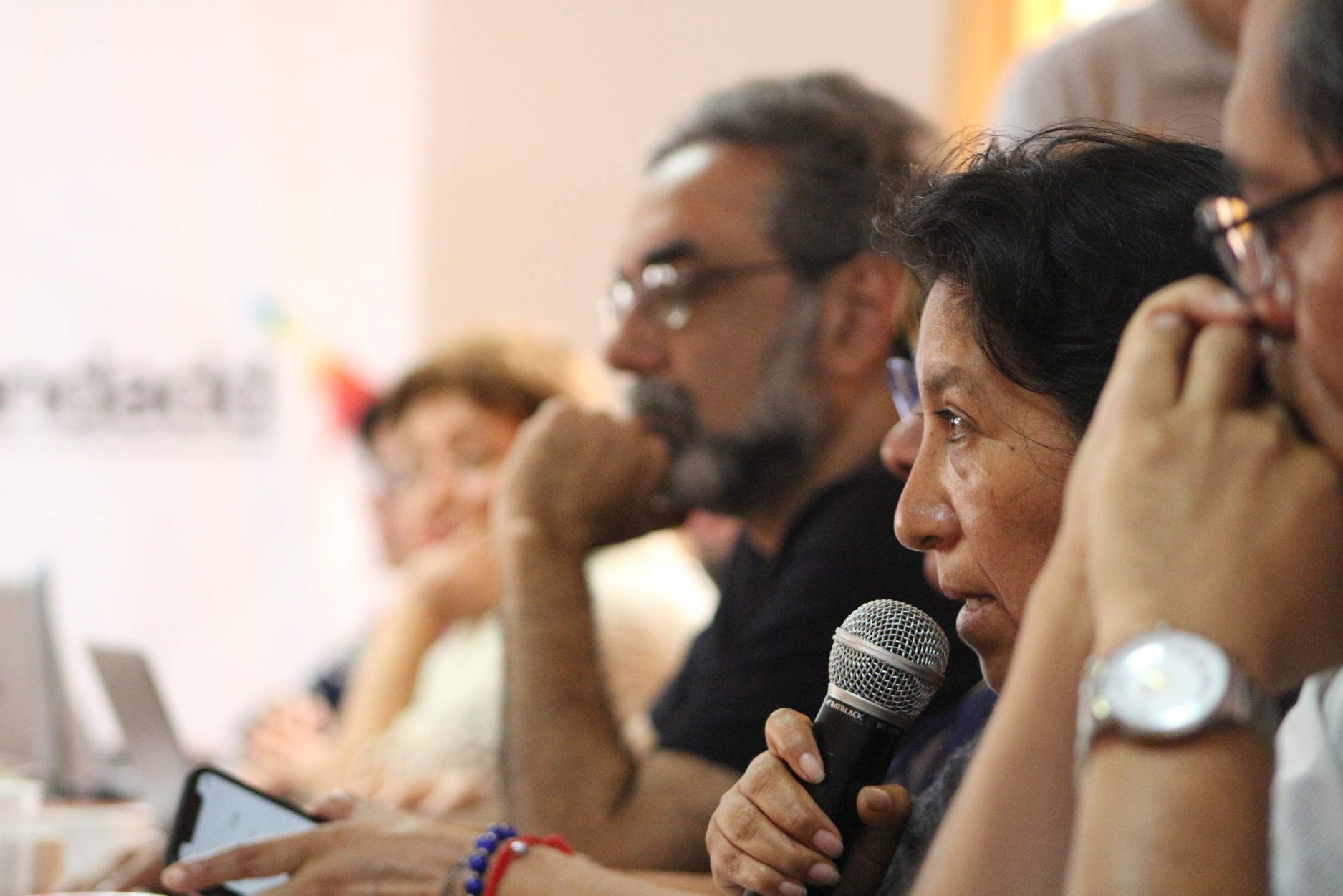On April 25th and 26th, the 5th Multi-actors gathering for Tax Justice was held in Lima, Peru, in order to contribute to the actions of dissemination, mobilization and advocacy of the latin american movement for tax justice.
In this region, networks and movements have started working for Tax Justice over a decade ago. Along the way, civil society networks have formed specifically to monitor the policies of International Taxation and its sociopolitical impacts, and to raise proposals for Tax Justice, both at the regional and national level. Likewise, some regional social movements, through some of their organizations, have engaged in the study and dissemination of tax issues by analyzing the impact of their sector.
Six years ago, LATINDADD and GATJ’s regional network in Latin America, the Red de Justicia Fiscal de América Latina y el Caribe (RJFLAC) initiated an effort to share their analysis and their outreach & advocacy progresses with social movements and multiple actors in the region. This new Tax Justice sharing space is called Multiactors’ gathering (Encuentro de Multiactores)
As a way to contribute to a wider dissemination of knowledge, the regional campaign Paguen lo Justo (Multinationals Pay Your Fair Share) was launched four years ago, promoting a series of outreach and debates about the broken global tax system and the problems linked to Tax Incentives, both nationally and regionally.
Since last year, the Campaign’s name switched to Tax Justice in Our America (Campaña regional por la Justicia Fiscal en Nuestra América) and is more focused on national issues. In 2017, the Regional Agenda for Tax Justice was launched, as a result of the 2017 and 2018 Multiactors meetings, serving as a basis to incorporate new contributions. 2019 is the year to develop this agenda in the different meetings of the regional movement for tax justice – this, in the “giras” that will tour the Andean, Central American and South American subregions and in the conferences and activities of the RJFLAC, Latindadd as well as in other specific campaign activities.
In this context, the round table “Feminist Contributions and Challenges to the Economy” was held on March 25, to advance the agreements generated in Mexico in March and continue the work that the Tax and Gender Group of the region has been doing since its creation.
https://www.facebook.com/watch/Latindadd/
Patricia Amat, of Peru’s Gender and Economy group, opened the discussion, presenting the journey taken by the tax justice efforts at the local level. She was followed by Verónica Serafini (DECIDAMOS Paraguay and Coordinator of the regional Tax & Gender), Magdalena Leon (REMTE Ecuador and CLACSO) and Susana Osorio (feminist economist and activist from Peru). They discussed the basic concepts of feminist economics and experiences developed so far to study and challenge the impacts of tax inequality on the gender equality fight.
Finally, Alejandra Scampini (DAWN Uruguay), Patricia Amat and Irma Ganoza (Peru) closed the day of debates, by listing the progress made so far in the regional spaces, together with the challenges that the tax & gender agenda have to deal with – “challenges that are both numerous and motivating to keep up the good work”.
“This example of meeting and space is part of the progress made by Latin America, in terms of the link between tax and gender”, says Inés Barboza, GATJ policy and campaigns coordinator in Latin America. In this sense, the regional tours for tax justice (developed along the 2019 year will have a specific workshop on this topic (with ad hoc materials) in each country where they will be held. They will also promote a meeting space with Feminist organizations to continue insisting on the necessary communion between both agendas.
The following day, representatives of the region’s civil society, trade union centers and academics met for a round table entitled ‘The urgent anti-avoidance rule’.
https://www.facebook.com/watch/Latindadd/
“The anti-avoidance rule, also known as standard XVI, has become one of the main disputes in the field of tax regulation in Peru,” explains Latindadd. “This problem and its approach is not only a national issue, it is a problem common to all the countries of the region. Therefore, reforms are promoted that allow a greater and better tax collection, so that our countries have fairer and more progressive tax systems, and that the resources generated improve the quality of life through quality public services”.
“Latin America lost some 335 billion dollars in 2018 (6.3% of its GDP) due to tax evasion and avoidance, states the RJFLAC. In Peru, the application of a norm of this type could generate half a percentage point of the additional GDP in the annual collection, that is, around 5 billion soles.”
